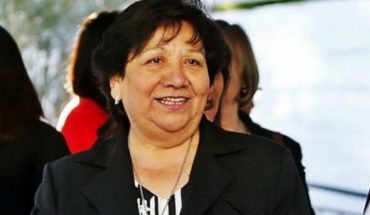Days go by and the international community watches as uncertainty grows and certainties around the Ukraine crisis are reduced. However, certain aspects remain untouched. For example, there is no doubt that the cold war between east and west is capable of re-emerging under new modalities. There is also certainty that the Ukraine crisis is part of a confrontation between Moscow and Washington that has succeeded in galvanizing — and misinforming — the public opinions of their respective blocs, to prevent the emergence of an independent perspective of their narratives.
The world remains expectant. Latin America sees the risk of a new military confrontation from a distance, wondering what its aftermath might be, and China, far from remaining an observer, has already given its diplomatic support to Russia. In the United States, President Biden said Russian troops deployed on the border will invade Ukraine in February. And in the European Union, it is also not certain that countries will maintain a united front against Russia, unless Moscow invades Kiev definitively. Among other reasons, because a plan B that goes through the rupture of the country has been maintained for a long time.
In reality, it was to the acceptance of the division of Ukraine that president Biden’s lapse alluded to days ago when he said that a limited Russian intervention in Ukraine would have only a moderate response from the United States and NATO. That is, if Moscow were limited to intervening in Ukraine from the east to gather the territories where the Russian population lives, segmenting it from the rest of the country, that would be a problem not as serious as if it intervened in the western part of the country. In the end, Biden is pointing to the solution B that has been flying over this conflict: the division of Ukraine.
That option would avoid the risks to both sides of a full-blown Russian invasion, including Kiev. For Moscow, because if it invaded the western part of Ukraine, it would definitely lose European public opinion, whose division it takes advantage of. For Washington, because it knows that NATO could not respond militarily in Ukrainian territory, because that country does not belong – yet – to the Atlantic Alliance. Thus, a limited intervention, dividing the country, could be a solution of last resort.
Of course, some voices are emerging in Europe against the militarization of the conflict. Several minority political groups, such as Podemos in Spain, are opposed to sending national forces into the conflict environment. But his “no to war” offers little proposal for its solution.
A few decades ago, the once powerful European peace movement had suggested a perspective that seemed possible: the path to neutrality. That option recovered well the European memory of the twentieth century, especially in those countries that had suffered the same circumstance that Ukraine now suffers: to find themselves in a sandwich between the forces of east and west. These were, for example, the cases of Austria and Finland, which, in addition to Sweden, have made good use of their neutrality status.
Moving in this direction, Ukraine could belong to the European Union without belonging to NATO, as Austria and Finland have done. A neutrality status for Ukraine, without too many formalities, but recognized by both blocs, would be the best defense of a Ukraine without divisions.
Even if it were not entirely to Moscow’s liking, a neutral Ukraine would eliminate Russian arguments about the risk to its security posed by NATO’s advance towards its borders, which so convinces its citizens. Of course, on the Western side, Ukraine’s neutrality would mean abandoning its propensity to the old Cold War Atlanticism; something they do not seem willing to part with, especially Washington, which has just responded with a resounding NO to the Russian request to agree that Ukraine would never be part of NATO.
However, the emergence of a current of opinion in favour of Ukraine’s neutrality in Europe would greatly favour a properly European security option, which would strengthen détente and trade interests with Russia, starting with energy products.
The question is: where might this current of opinion come from? The old peace movements have ceased to exist or have been transformed into study or humanitarian organizations. Minority political groups that reject the They cannot let go of their suspicion of favoring Moscow’s interests. The conservative parties undoubtedly absorb the renewed Atlanticist narrative. And social democracy is divided on this issue in the main European countries.
However, it seems clear that the country that would gain the most from this prospect of neutrality is precisely Ukraine. Not only because it would regain stable security, but because it could put into practice one of its greatest economic dreams: to act as a bridge between the markets of Russia and the European Union (today Ukrainian products have as their main destination the Russian market). But those advantages must also be made clear in Ukraine itself, whose public opinion remains divided.
A current favourable to this prospect of neutrality, similar to that of Austria or Sweden, could also be promoted through the good offices of the United Nations. But the words spoken by its Secretary-General, Antonio Guterres, have not been very fortunate in stating that he is “completely sure that Russia will never invade Ukraine.”
Guterres’ trust should not be the basis for United Nations action in the face of this conflict. It seems that the capacity for initiative, with sufficient boldness and solvency, is not today an attribute possessed by the international organization that is supposed to defend world peace. If armed conflict occurs, it will prove once again that the international community — including Latin America — does not seem to have learned much in terms of prevention, even after a pandemic.
Enrique Gomáriz Moraga prepared his doctorate in political sociology with Ralph Miliband. He participated in Zona Abierta and the refoundation of Leviathan. He was the first director of Peacetime. He worked at FLACSO Chile and has been an international consultant for agencies such as UNDP, UNFPA, GIZ, IDRC, IDB.
www.latinoamerica21.com, a plural media committed to the dissemination of critical opinion and truthful information about Latin America. Follow us on @Latinoamerica21
The content expressed in this opinion column is the sole responsibility of its author, and does not necessarily reflect the editorial line or position of El Mostrador.





